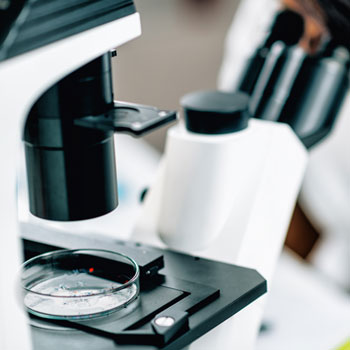Microplastics and human gut cells
The occurrence of microplastics in the marine environment can pose a risk to human health via the consumption of seafood. However, because of the heterogeneous character of environmental microplastics and lacking toxicity data, a robust risk assessment for human health is difficult. The aim of the project is to find out whether and how different types of marine microplastics that are currently detected in blood cockle, an Indo-Pacific shellfish, can cause biological effects in humans. The study commences with a thorough determination of the physical and chemical characteristics of three different microplastic types (fibers, fragments and films), followed by an analysis of the uptake and transfer of these particles in gut cells and is concluded with an in-depth assessment of potential adverse effects. The uptake, translocation and toxicity data gathered in the present project will support the assessment of human risks.
The project
The OU leads the project with scientists from Indonesian, Dutch and Belgian Universities. The project fits excellently within the 14-year scientific collaboration between the OU and the Soegijapranata Catholic University and the project 'Microplastics in coastal seafood in Indonesia: risk assessment and food safety' (projectleader dr. Ansje Löhr, in collaboration with prof. Ad Ragas and prof. Budi Widianarko supported by the Indonesian Ministry of Research, Technology and Higher Education). The research will be carried out at the research group Zoology: Biodiversity & Toxicology of Hasselt University (Belgium) under the supervision of prof. Karen Smeets. For the production of microplastics, there is a collaboration with the Soil Physics and Land Management (SLM) chair group at Wageningen University & Research under the supervision of prof. Violette Geissen. Dr. Frank van Belleghem is the project leader for the OU. He works as an assistant professor of Environmental Toxicology at the OU. His teaching activities are in the field of biology, biochemistry, (environmental) toxicology and environmental sciences. His area of expertise covers toxicity of environmental pollutants including nanoparticles and microplastics, oxidative stress, carcinogenesis, neurotoxicity, regeneration and electron- and fluorescence microscopy. Inneke Hantoro has her Master degree on Food Science from The University of Melbourne, Australia. She is a full time lecturer at the Department of Food Science, Soegijapranata Catholic University, Indonesia. She is a PhD student at Department of Science, Faculty of Management, Science & Technology, OU. Her research is focused on the risk of microplastics in Indonesian coastal areas for coastal seafood species and human health.
ZonMW
The Dutch organization for health research and health care innovation, ZonMW, is a funding organization for innovation and research in health care. It manages approximately 90 subsidy programs in the fields of Science and Innovation. They also stimulate the use of developed knowledge and thus contribute to improving care and health.



